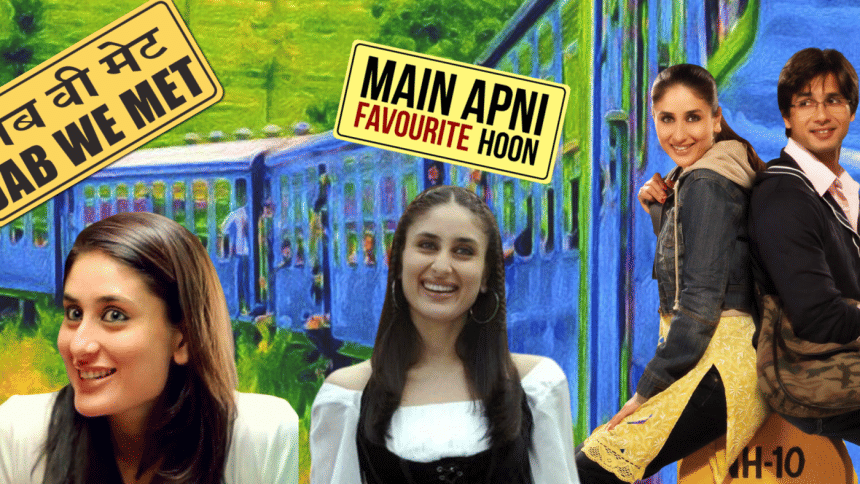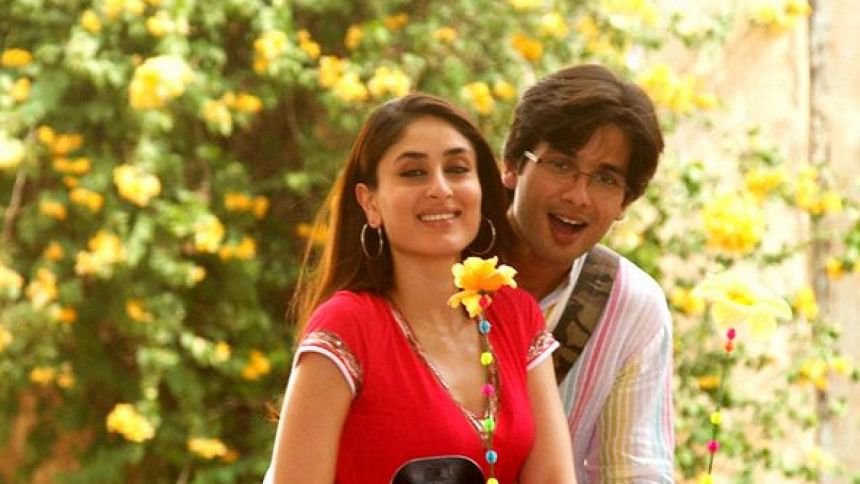15 Years of ‘Jab We Met’: How ‘Geet’ redefined the female protagonist

In early 2007, writer-director Imtiaz Ali began working on his second film, casting the then real-life couple Shahid Kapoor and Kareena Kapoor in their fourth film together. Viewed as an underdog during its making by many, even Kareena herself, the movie went on to not only surprise everyone, but also to set a precedence in terms of quality.
Today, even after 15 years, the movie is immensely popular and loved. Sensitively crafted characters, picturesque cinematography, hilarious dialogues and amazing music have earned it a space in our hearts and minds, like no other Bollywood movie.
"Jab We Met" was monumental in its depiction of modern South Asian women. It stands apart from the silly dichotomy Bollywood previously had among its female roles, a lead character distinct from the 'vamp' archetype. The supposed "sangskari", i.e., "poised" lead was shown as a docile, naïve girl who was obedient of her family's orders, whereas the vamp was shown to be "corrupted" by modernism. The movie steps away from such patriarchal derogatory views about women and shows that a woman running away from her house is not a "fallen woman", but indeed a protagonist who makes her own decisions.
This philosophy that women had started to bear in the 2000s, as they had stepped out of their homes and joined the workforce is beautifully crafted in the movie. Kareena Kapoor's character, Geet, comes from a small-town. Her living alone in Mumbai hostels, enjoying the bustle of the city, deciding to marry a guy out of her sect because of love, all reflect the values that women had started to garner. In fact, this character created a tide in Bollywood, with movies like "Bareilly Ki Barfi", "Band Baaja Baaraat" and "Tanu Weds Manu" showing the lives and aspirations of women of a new school of thought.
Geet is no damsel in distress. The dialogue "Sikhni hoon main Bhatinda Ki" is very popular in social media and pop culture. This powerful delivery loosely translates into "I'm a Sikh woman from Bhatinda" and hints at Geet's Sikh origin and her fighting spirit. Previously, a woman was shown to be at the mercy of the male characters, not knowing how to operate administrative and logistical chores. In contrast, Geet travels alone, ensures her own safety and even mocks the station master who gives her misogynistic tips. Indeed, modern women have no "chillar" or coins for such advice!

The beautiful aspect of Geet was her self-love. For female characters, Bollywood has always shown self-sacrifice as the utmost value, and self-love was viewed as shallow, even impure. But when Aditya, Shahid Kapoor's character, being depressed and witnessing jovial Geet asks her if she loves herself, she replies with "Main Apni Favorite Hoon", meaning, "I'm my favourite". We are reminded, perhaps for the first time in Bollywood, that self-love is indeed one of the most significant survival skills and women who nurture it are not shallow, rather they are apt at a genuine aspect.
The family dynamics, as shown in the movie, is very interesting. Geet is loved by her family and they receive her joyously when she arrives home. But immediately she is shamed for her choice of clothing. She is not allowed to marry a guy she likes. Geet adores them, too, but decides to leave home. This clash of values is very common in South Asian households, but rarely talked about. As opposed to other movies where it is unthinkable for a female lead to disobey her family, "Jab We Met" sensitively crafts how women are often stifled and suffocated, but nonetheless loved in their homes.
The crafting of the character of Aditya was equally significant. He is indeed a member of the ultra-rich. However, despite his privileges, he is muddled in family complications. He has a knack for music, but his company's responsibilities and problems burden him to the point of a breakdown. But he cannot articulate anything, and is expected to stay calm. This hidden trauma of men in our society is something we rarely talk about. The failure to acknowledge their problems is once again shown in the movie.

Aditya is sensitive, he has ethical values. He is responsible and caring about those he loves. These values make up the archetype that real women actually want in a man, an aspect almost absent in Bollywood so far. Aditya is no hunk; he is not a macho who fights with thugs. But he ensures that Geet reaches her home safely and he respects her family. He supports Geet when she is alone and desolate. He remembers Geet's efforts and reciprocates them. Hence, it is neither his wealth nor his muscles, which had been the hallmarks of a male lead so far, but rather his smile and innocent dancing in the rain which make him the dearest of all.
"Jab We Met" is refreshing in its portrayal of love and relationships. There is no love-at-first-sight, no melodramatic moment of falling in love. In fact, there is a road trip, which is symbolic of the bonding. The lead characters go on to know about each other, cultivate a mutual respect, develop a friendship, enjoy each other's company and support one another. The love bit arrives much later. This is very reflective of the modern courting and dating culture in South Asia, a stark difference from the rebellious, dramatic stories witnessed previously. In fact, this slow brewing, non-linear nature of the love story is what has made it into the favourite rom-com of this generation.
The film's 15-year mark undoubtedly makes us feel old at this point, but it still reminds us that be it chilly rainy days or our countless hustles, we always have "Jab We Met" to resort to.

 For all latest news, follow The Daily Star's Google News channel.
For all latest news, follow The Daily Star's Google News channel. 



Comments